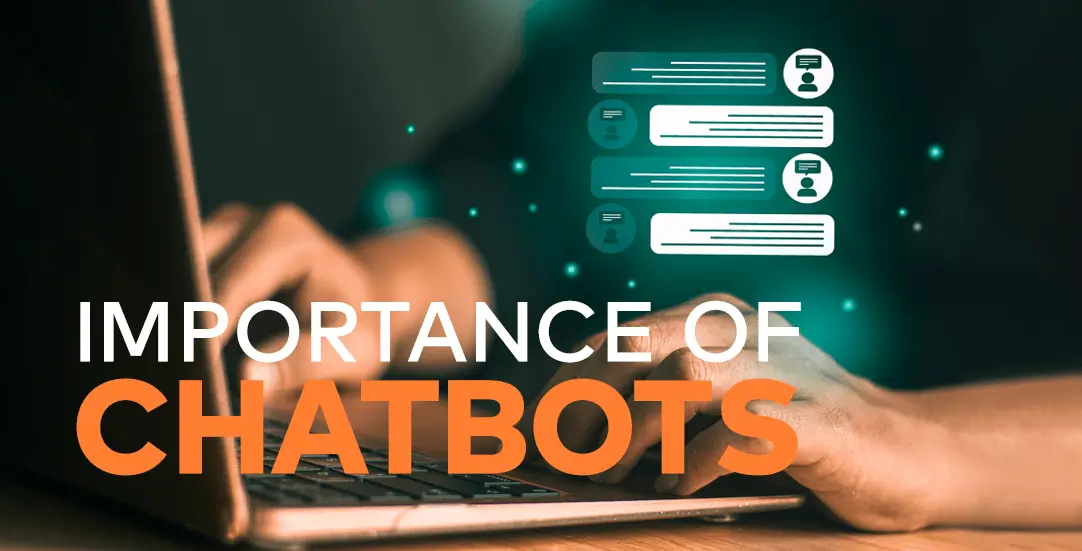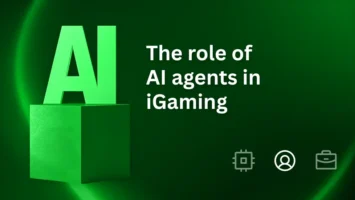Importance of chatbots in the customer service area of iGaming

In the dynamic and competitive world of iGaming, chatbots are transforming customer service by offering instant, around-the-clock assistance. These AI-driven tools swiftly manage everything from account inquiries to game-related questions, providing players with immediate support and enhancing overall user satisfaction. Chatbots not only streamline operations by reducing the need for human agents but also drive customer loyalty through consistent and efficient service. As iGaming continues to grow, the integration of chatbots in customer service is becoming increasingly vital, offering operators a powerful means to stay competitive and meet the expectations of modern players.
Understanding the role of chatbots in iGaming
Although it took some time to reach this point, we are now witnessing a significant integration of chatbots into gambling platforms and messaging apps. Previously, users had to leave their game or app to accomplish other tasks. Today, chatbots allow you to manage various activities without exiting your game.
Got an appetite while gambling? No worries! You can simply instruct your chatbot assistant to place a pizza order while you stay immersed in your gameplay. Curious about the current movie listings but don’t want to pause your game? There’s no need! Just consult your virtual assistant directly within the game, and they’ll provide you with all the showtimes and movie details you need.
Moreover, the application of chatbots and virtual assistants extends beyond convenience to include comprehensive player support. These AI-driven assistants are adept at managing a wide range of player inquiries, from troubleshooting game issues to offering tips and strategies. By embedding chatbots within gaming platforms, developers ensure that players have uninterrupted access to support, enhancing the overall gaming experience.
This seamless integration of chatbots is revolutionizing not just how players navigate their gaming environments, but also how they manage everyday tasks, thus creating a richer, more efficient user experience that blends entertainment and practicalities into one cohesive ecosystem.
Defining a customer service chatbot
A customer service chatbot is an AI-driven software application designed to simulate human conversation and assist users by automating responses to their queries. These chatbots are integrated into various platforms, such as websites, mobile apps, and messaging services, to provide instant, 24/7 support. They use natural language processing (NLP) to understand and interpret user inputs, enabling them to offer relevant information, address common issues, and facilitate a smooth user experience without the need for human intervention. In the iGaming industry, customer service chatbots enhance player experience by providing efficient, real-time assistance, thereby improving customer satisfaction and loyalty.
Advantages of integrating chatbots in the iGaming industry
Integrating chatbots into the iGaming industry presents numerous advantages that significantly enhance both operational efficiency and player satisfaction. By providing instant, 24/7 customer support, chatbots ensure that players receive timely assistance with their queries, ranging from account troubleshooting to gameplay tips. This immediate response capability helps in retaining players and building loyalty, as users appreciate the seamless and uninterrupted gaming experience.
Boosting customer service
AI chatbots have revolutionized customer service in the gambling industry by providing 24/7 support. Their ability to quickly address and resolve customer inquiries at any time significantly enhances the user experience. This constant availability is especially crucial because timing is essential in gambling. If users can’t get their questions answered promptly, it creates issues for the platform. By using chatbots, the platform ensures that users’ problems are resolved immediately, which attracts more users. Ultimately, high-quality customer service is vital, and chatbots are exceptionally capable of delivering it.
Streamlining operations
Their ability to manage multiple tasks simultaneously makes them incredibly valuable. By addressing a large volume of questions and issues, they significantly reduce the workload for human support staff. This allows employees to focus on more complex and critical problems, enhancing overall efficiency.
Moreover, this reduction in workload directly translates to cost savings. With chatbots handling routine inquiries, the expense of maintaining a large customer support team is minimized. Additionally, the smooth operation of the casino remains unaffected, as chatbots ensure continuous and uninterrupted service.
Improving user engagement
Personalization significantly boosts user engagement and chatbots for gambling shine in this area. These chatbots can interact with users on a personalized level, providing tailored game suggestions. Additionally, they offer betting advice that matches individual preferences perfectly.
This high degree of personalization greatly improves the gambling experience, making it more engaging and immersive for users. As a result, it naturally fosters long-term engagement and loyalty.
The analytical capabilities of chatbots allow them to interpret user data and preferences, enhancing customer interactions. In the gambling industry, this leads to a more dynamic and interactive experience, which, in turn, helps boost business by increasing user involvement and satisfaction.
Overcoming challenges in chatbot implementation
Implementing chatbots, particularly in complex industries like gambling, comes with its set of challenges. However, addressing these obstacles effectively can lead to significant benefits. Here are some common challenges and examples of how they can be overcome:
Understanding user intent
- challenge – one of the primary challenges is accurately understanding user intent. Users might express the same query in different ways, making it difficult for the chatbot to comprehend and respond correctly,
- solution example – utilizing advanced Natural Language Processing (NLP) techniques can help. For instance, a gambling platform could deploy a chatbot that continuously learns from user interactions. By integrating machine learning algorithms, the chatbot can improve its understanding of various ways users may inquire about betting odds, game rules, or account issues.
Handling complex queries
- challenge – chatbots might struggle with complex or multi-step queries that require nuanced understanding or access to multiple data sources,
- solution example – Implementing a hybrid model that combines chatbots with human support can mitigate this issue. For example, if a user asks a complicated question about withdrawal procedures, the chatbot can provide initial basic information and seamlessly escalate the query to a human agent for detailed assistance.
Personalization
- challenge – delivering personalized responses based on user history and preferences can be complex,
- solution example – integrating the chatbot with a robust customer relationship management (CRM) system can help. For instance, a gambling website’s chatbot can access a user’s betting history and preferences to provide personalized game recommendations or betting tips, enhancing user engagement.
Ensuring data security & privacy
- challenge – chatbots often handle sensitive personal and financial information, making data security and privacy a critical concern,
- solution example – employing strong encryption methods and complying with regulations like GDPR can address these issues. For instance, a gambling platform can ensure that all user interactions with the chatbot are encrypted and that any data storage complies with the necessary legal standards.
Maintaining user trust
- challenge – users may be skeptical about interacting with a chatbot, especially if they’ve had poor experiences in the past,
- solution example – ensuring transparency and consistency in the chatbot’s communication can help. For example, a gambling website can program its chatbot to clearly indicate when a query is too complex and needs human intervention, rather than providing incorrect or incomplete information.
Integration with existing systems
- challenge – integrating chatbots with existing systems and databases can be technically challenging,
- solution example – using APIs and middleware can facilitate smoother integration. For example, a gambling website can use API gateways to connect its chatbot with various backend systems like user accounts, betting data, and customer support databases, ensuring a cohesive user experience.
While chatbot implementation presents several challenges, strategic solutions such as advanced NLP, a hybrid support model, CRM integration, strict data security measures, maintaining transparency, and leveraging APIs can significantly enhance their effectiveness. Overcoming these obstacles can lead to improved user engagement and satisfaction, ultimately benefiting the business.
Future of iGaming with chatbots
In the future, chatbots will be designed to not only assist with customer service but also to influence and enhance actual game mechanics. Imagine a chatbot that can adapt to the player’s skill level, offering real-time tips or altering game difficulty to keep the experience challenging yet enjoyable. This dynamic interaction can make games feel more responsive and personalized.
Predictive analytics for player retention
Advanced predictive analytics will enable chatbots to foresee patterns in player behavior, such as when a user is likely to disengage. They can then proactively offer incentives or tailor experiences to keep the player engaged, significantly improving player retention rates. This proactive approach can transform how iGaming platforms maintain and increase their user base.
Advanced emotional AI
Future chatbots will leverage emotional AI to better understand and respond to user emotions. By analyzing voice tone, text sentiment, or even facial expressions (through video chat), these chatbots can modify their responses to be more empathetic and supportive. This can create a more human-like interaction, improving user satisfaction and trust.
Gamification of support
Gamification elements will be incorporated into the chatbot interaction. For example, users might earn rewards or badges for engaging with the chatbot, completing tutorials, or participating in support interactions. This can make even routine support activities engaging and fun for players.




















